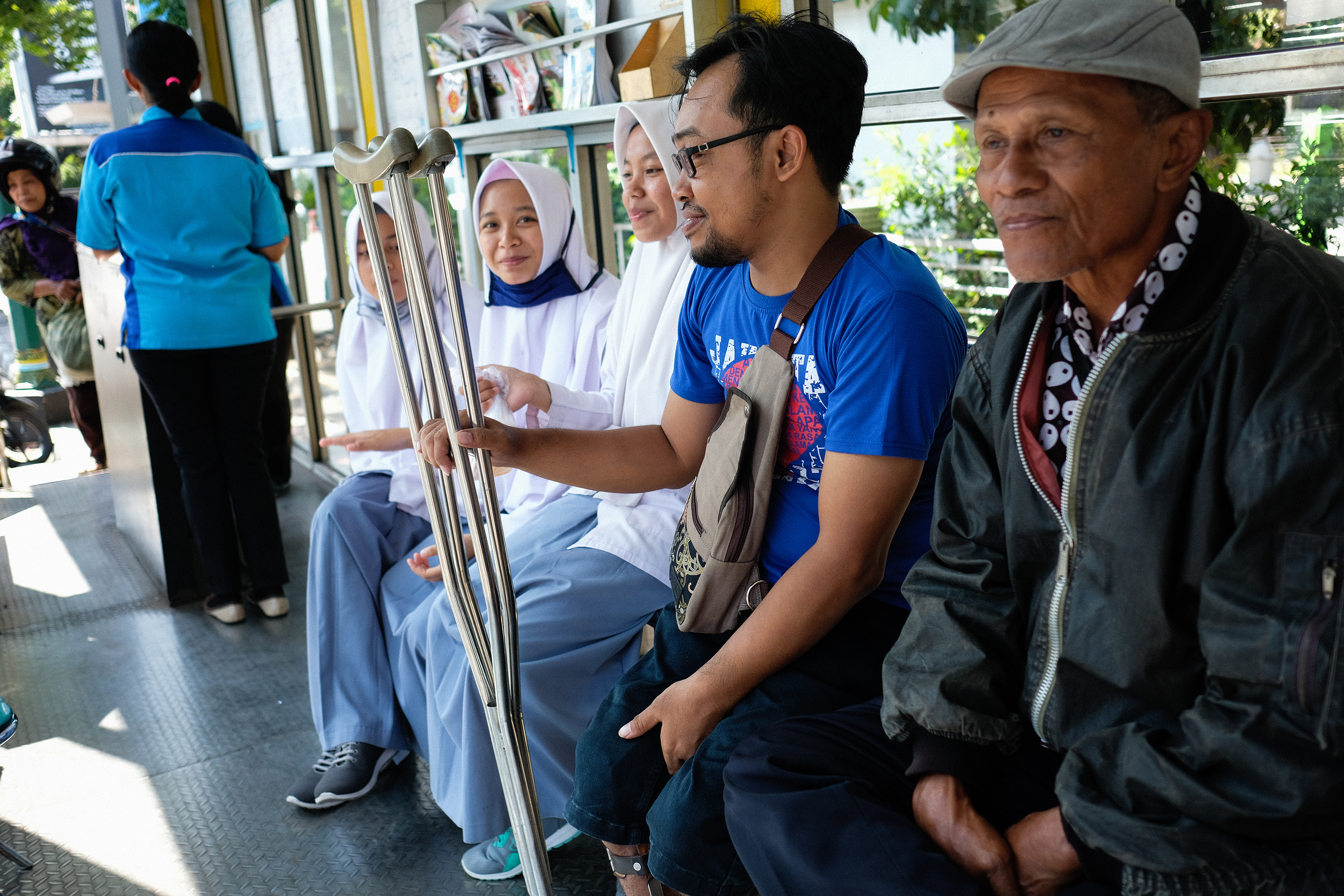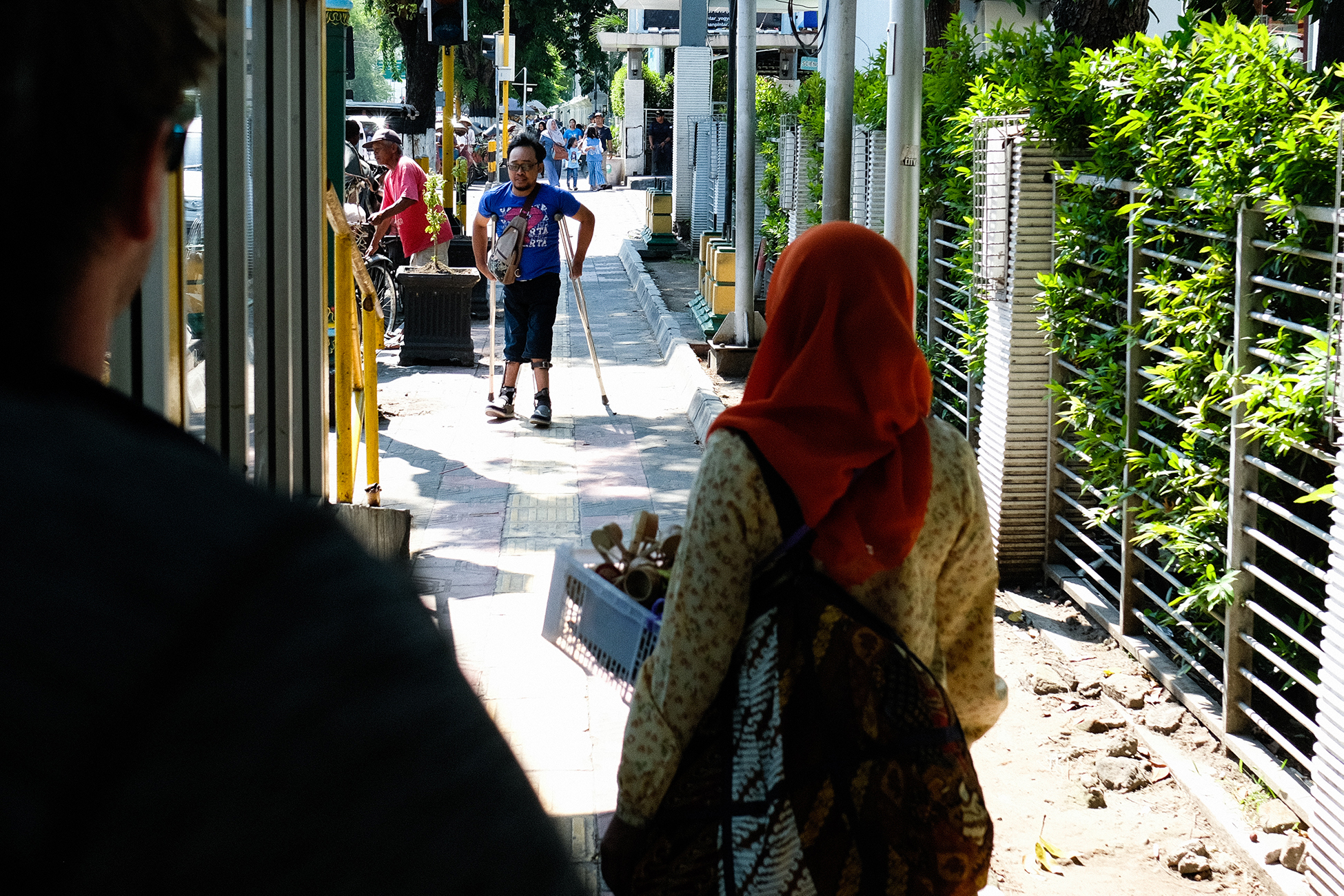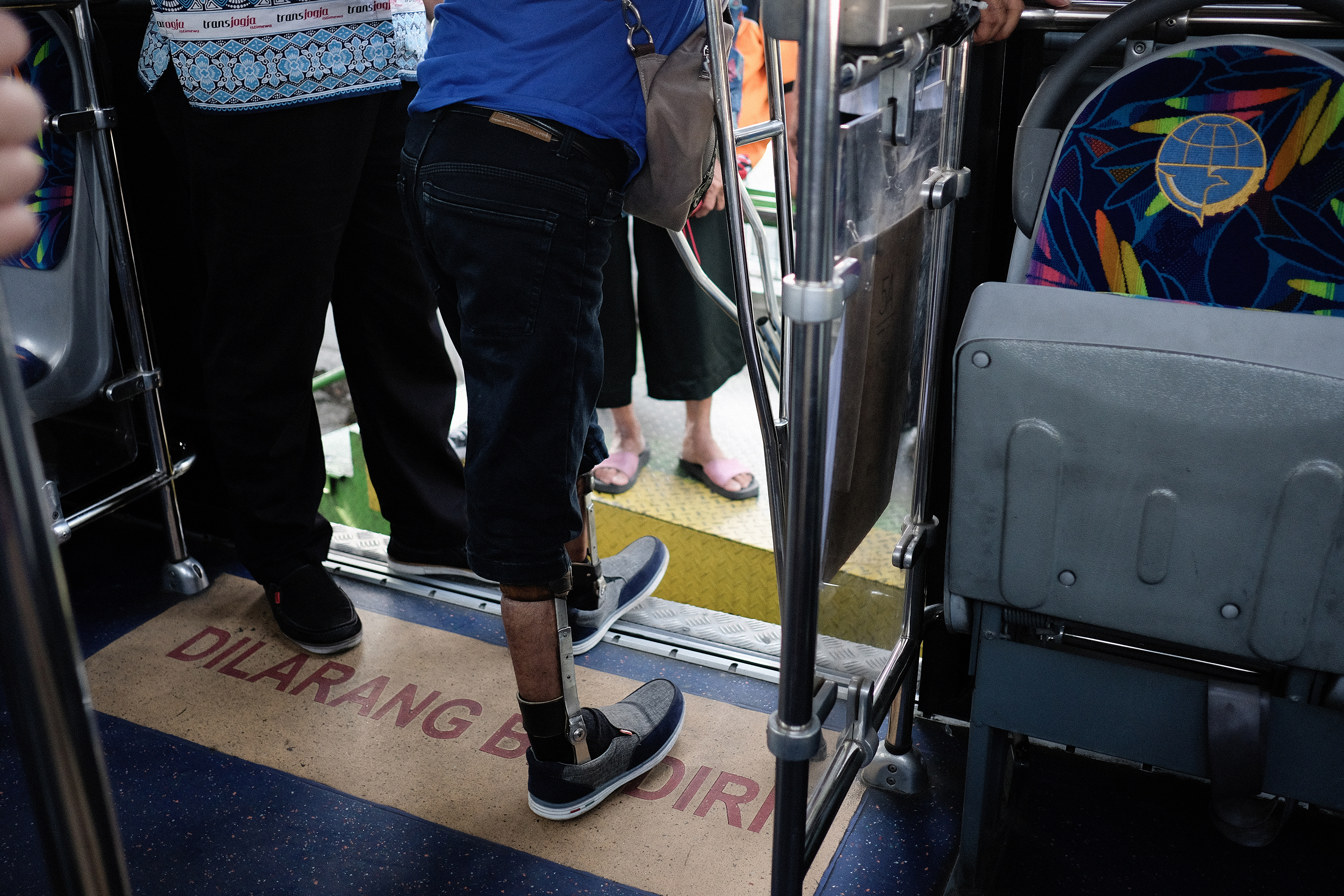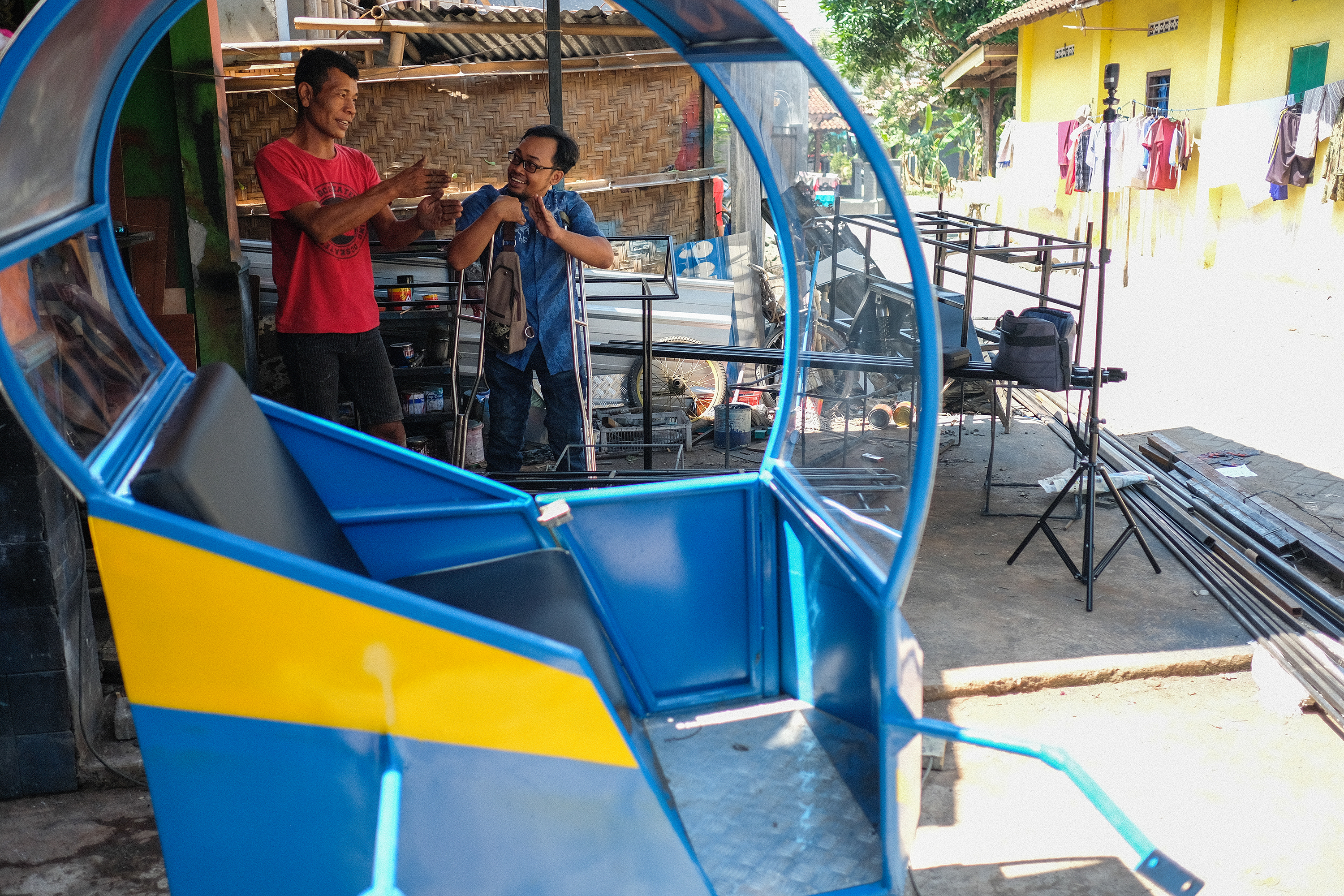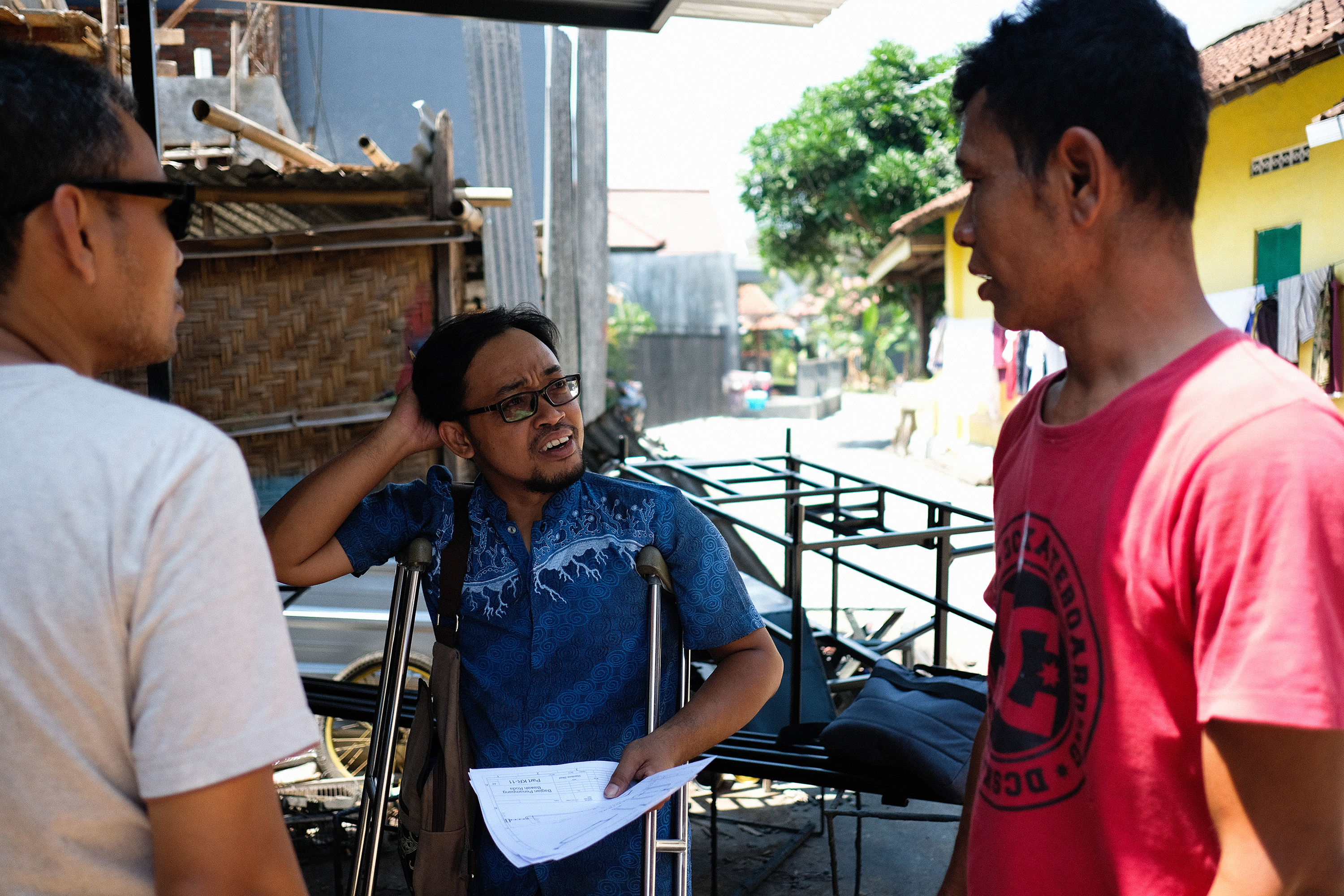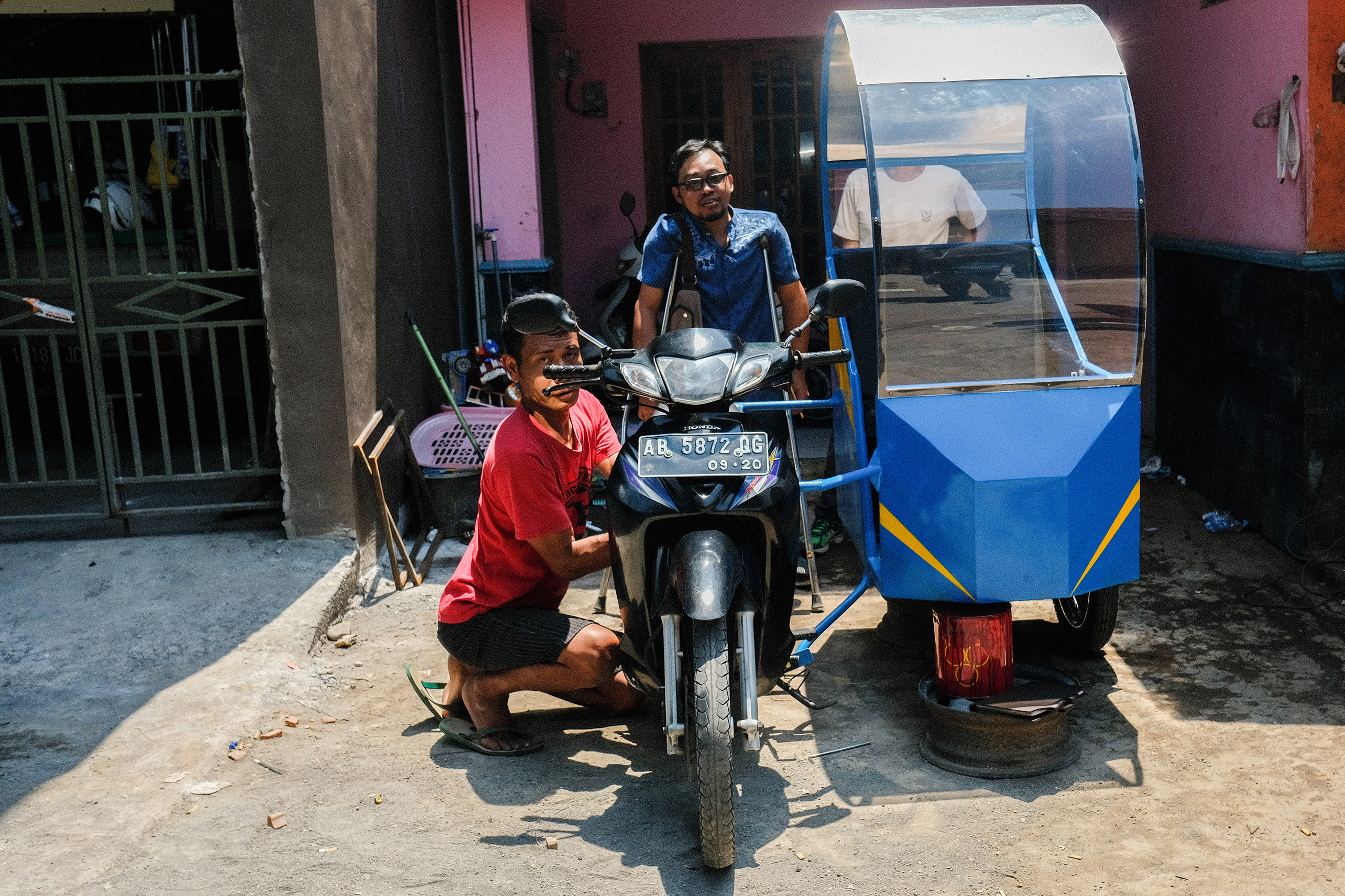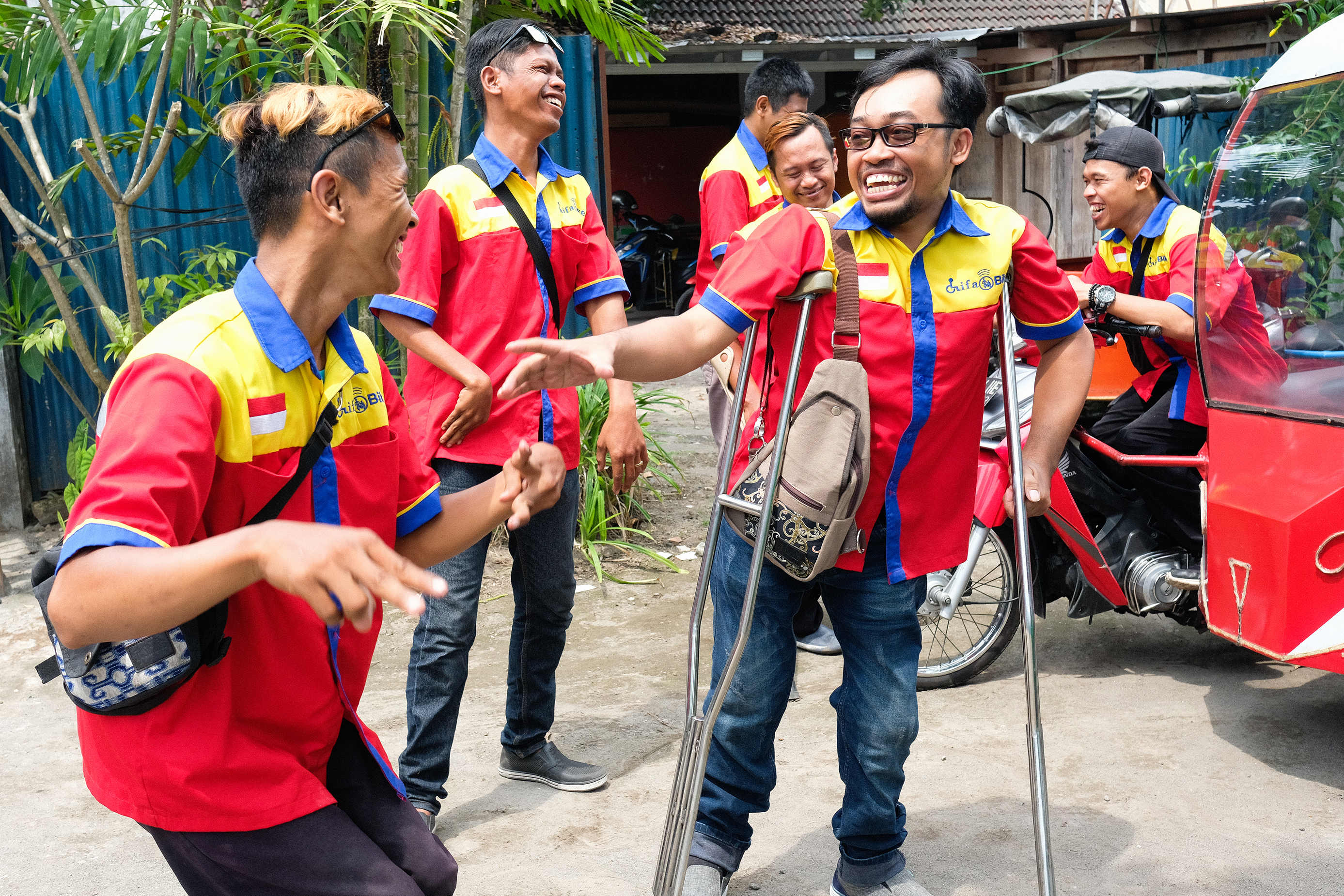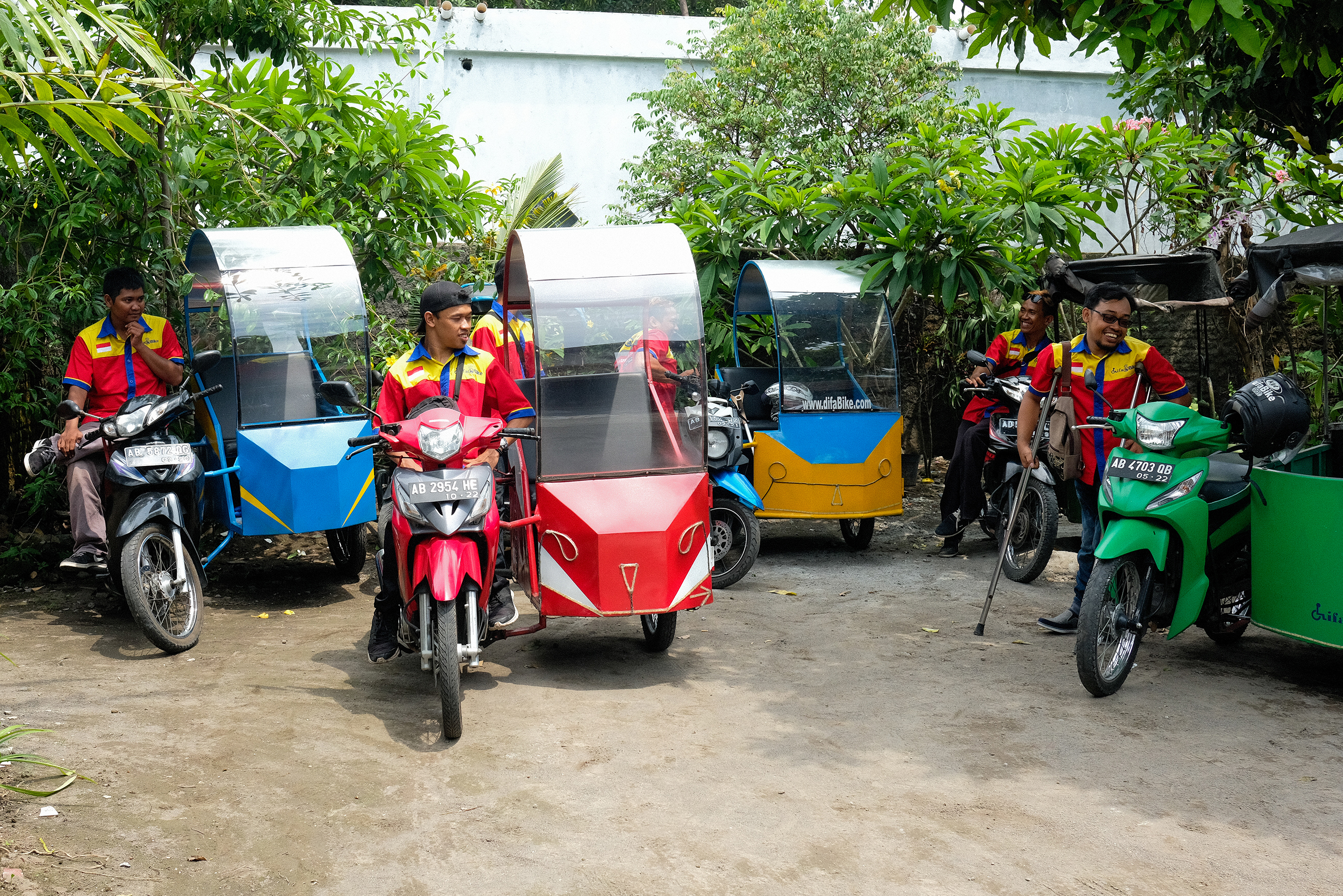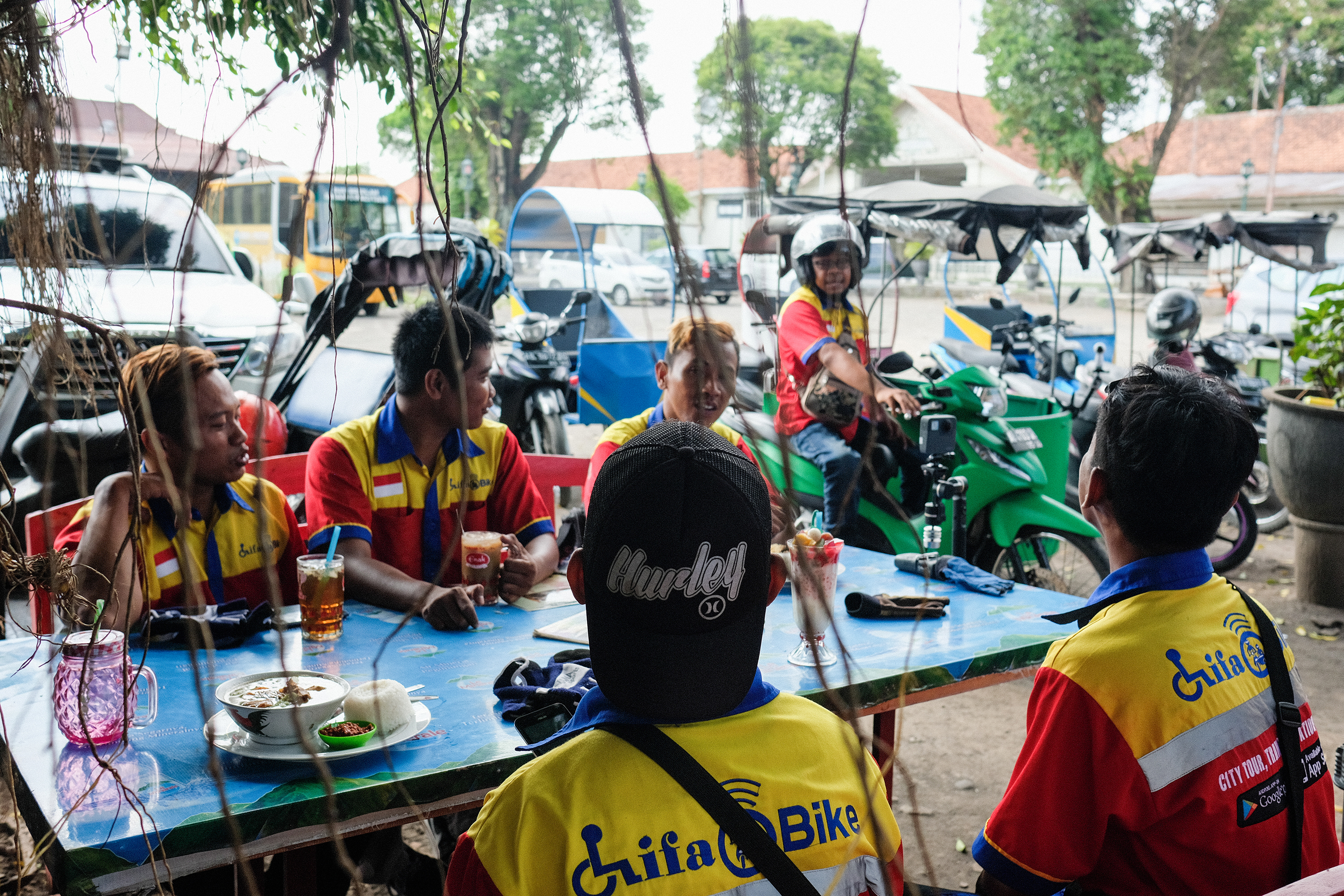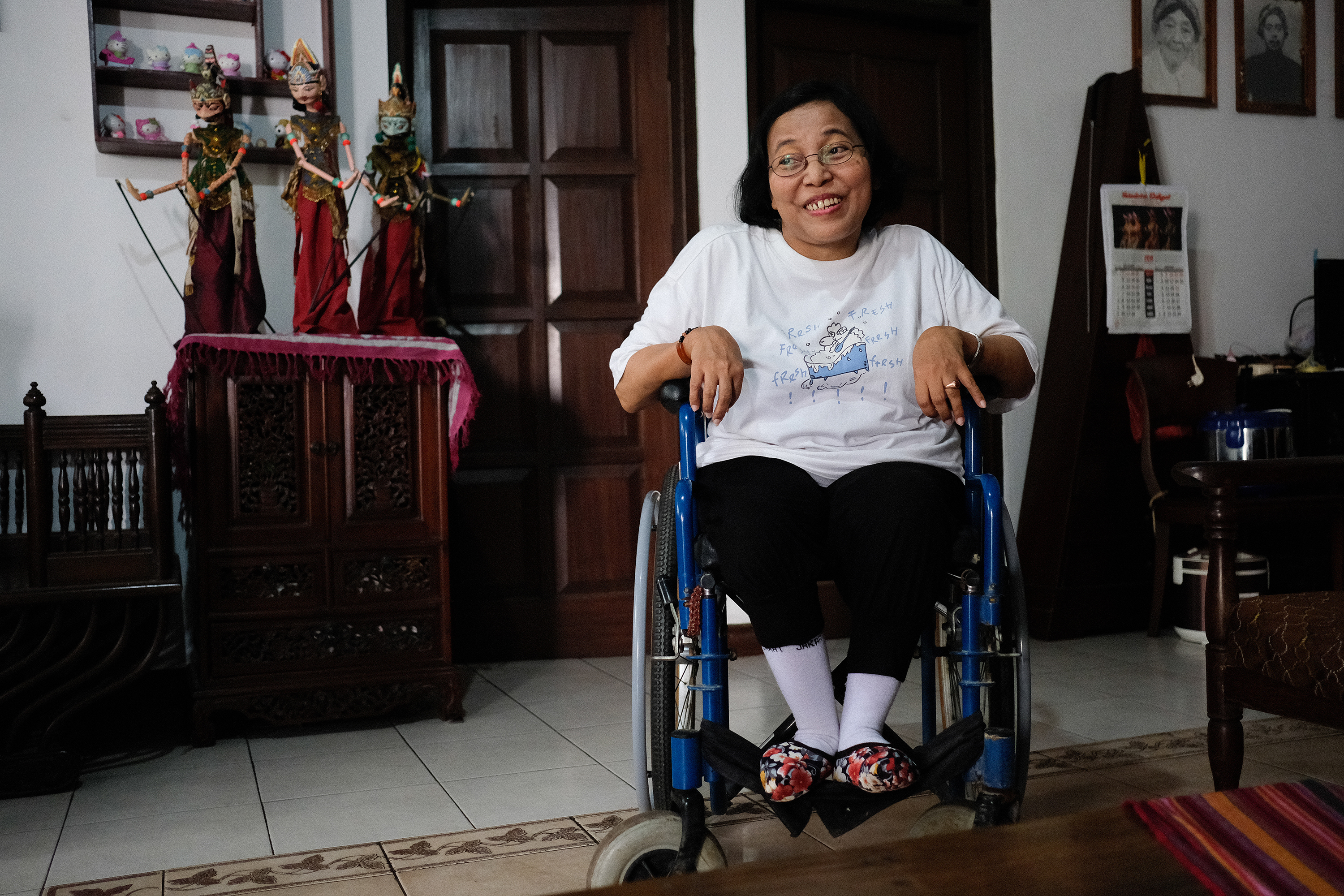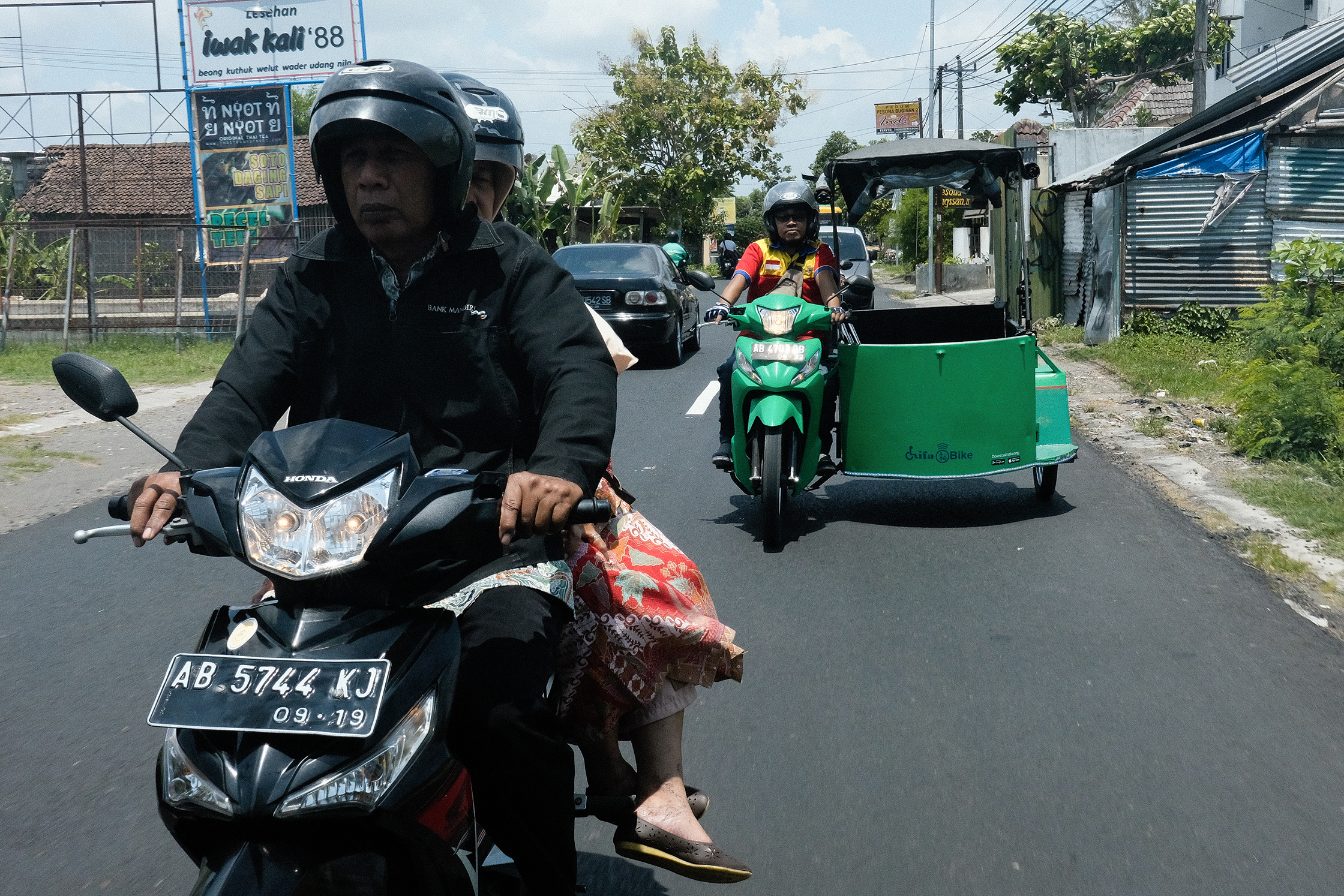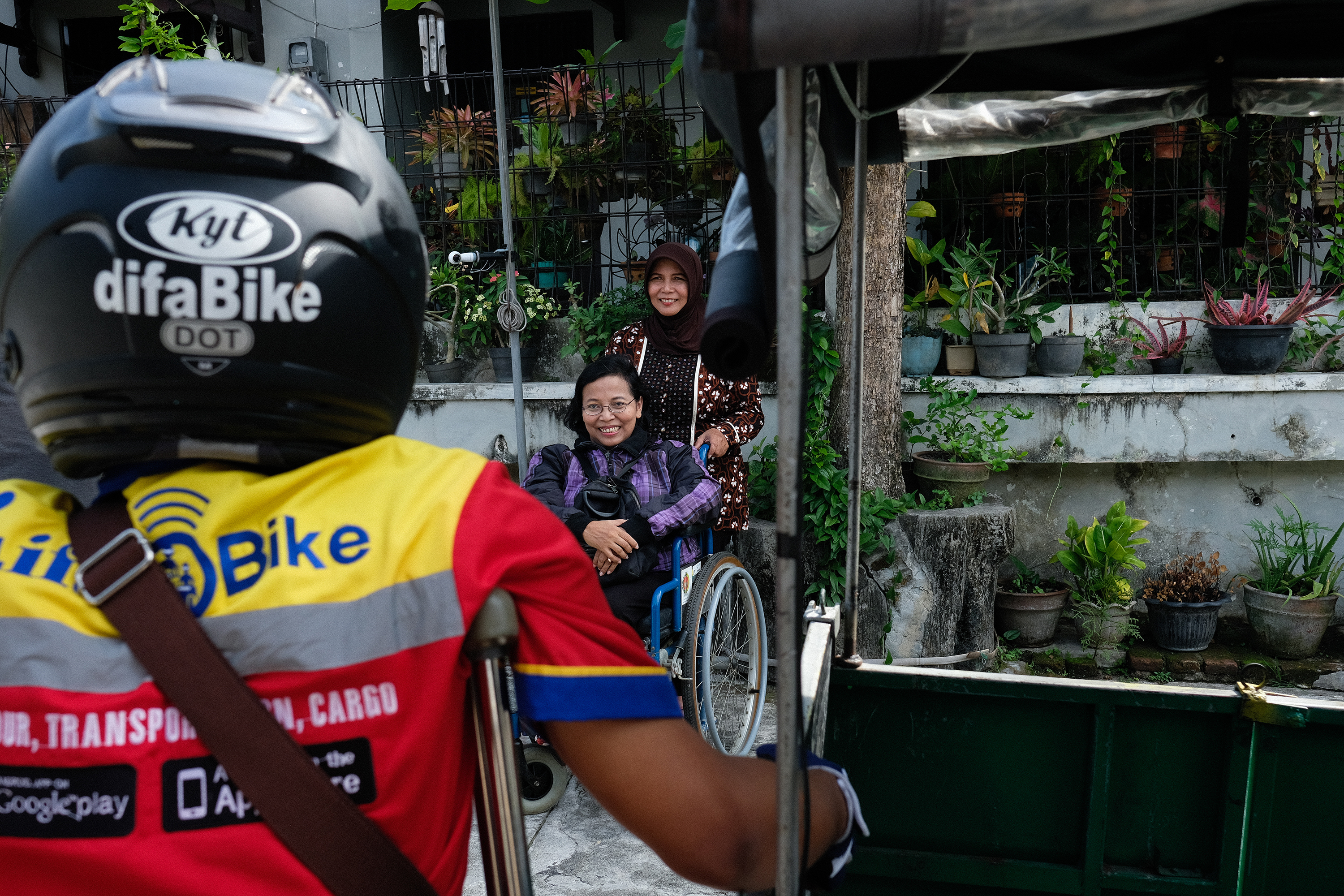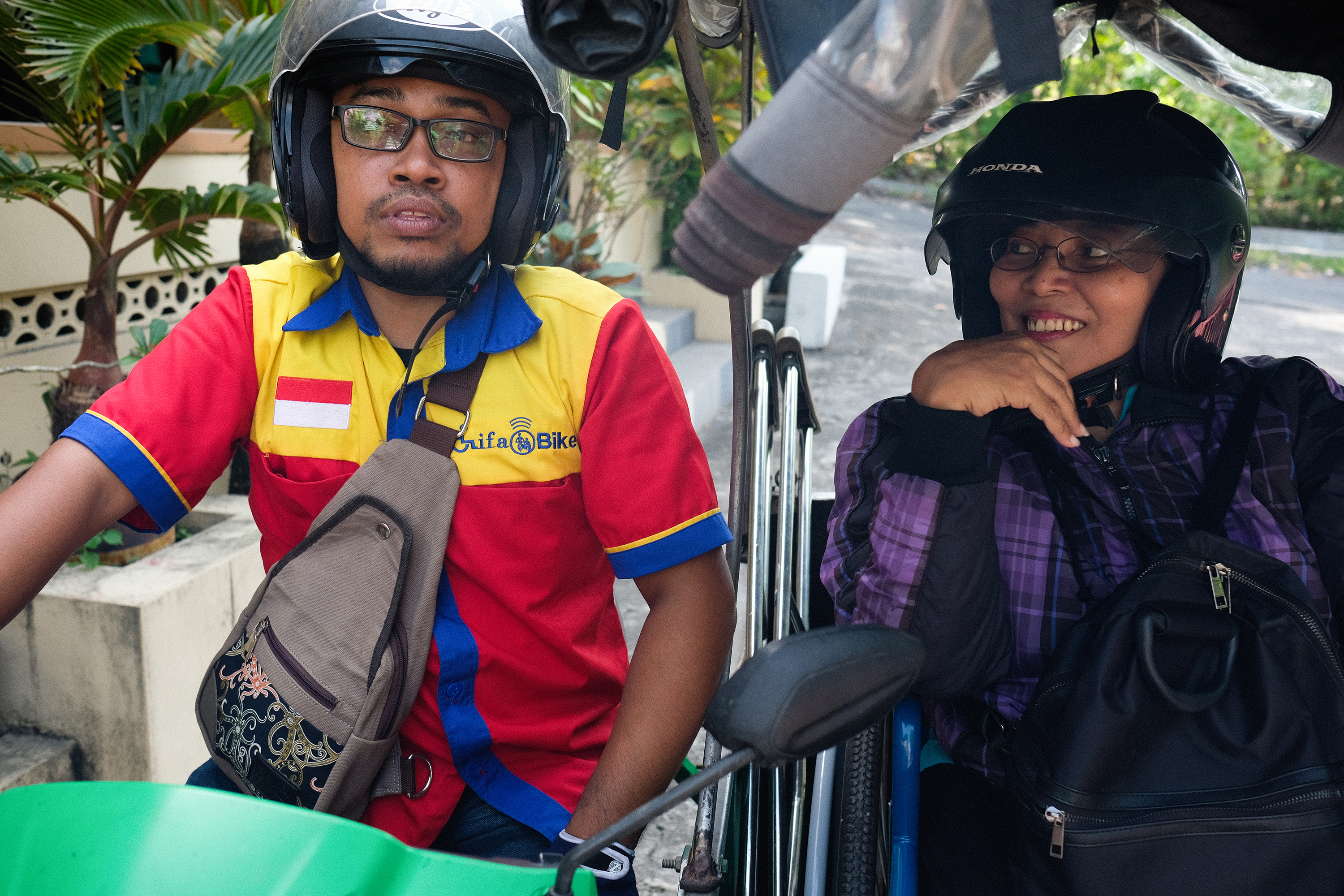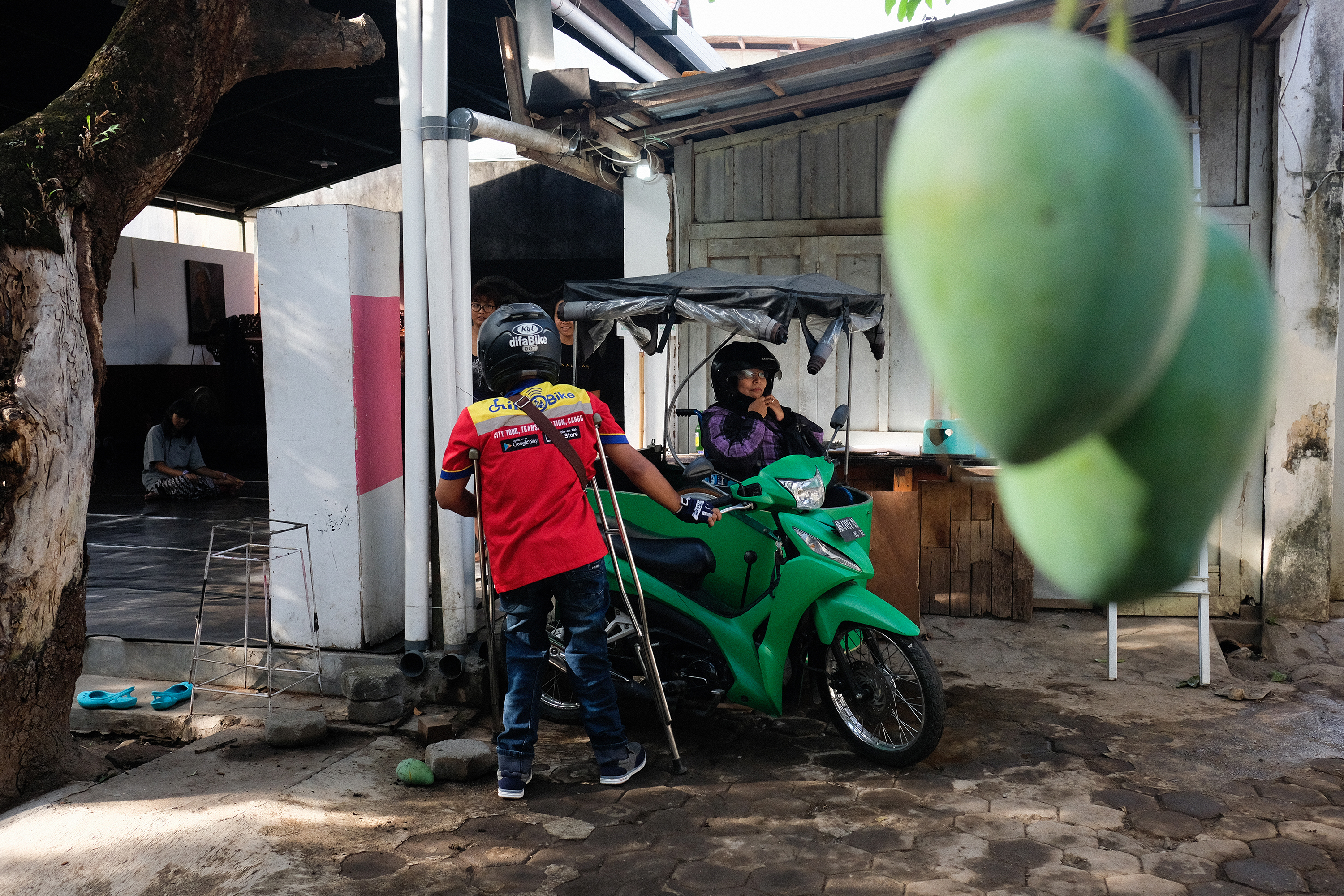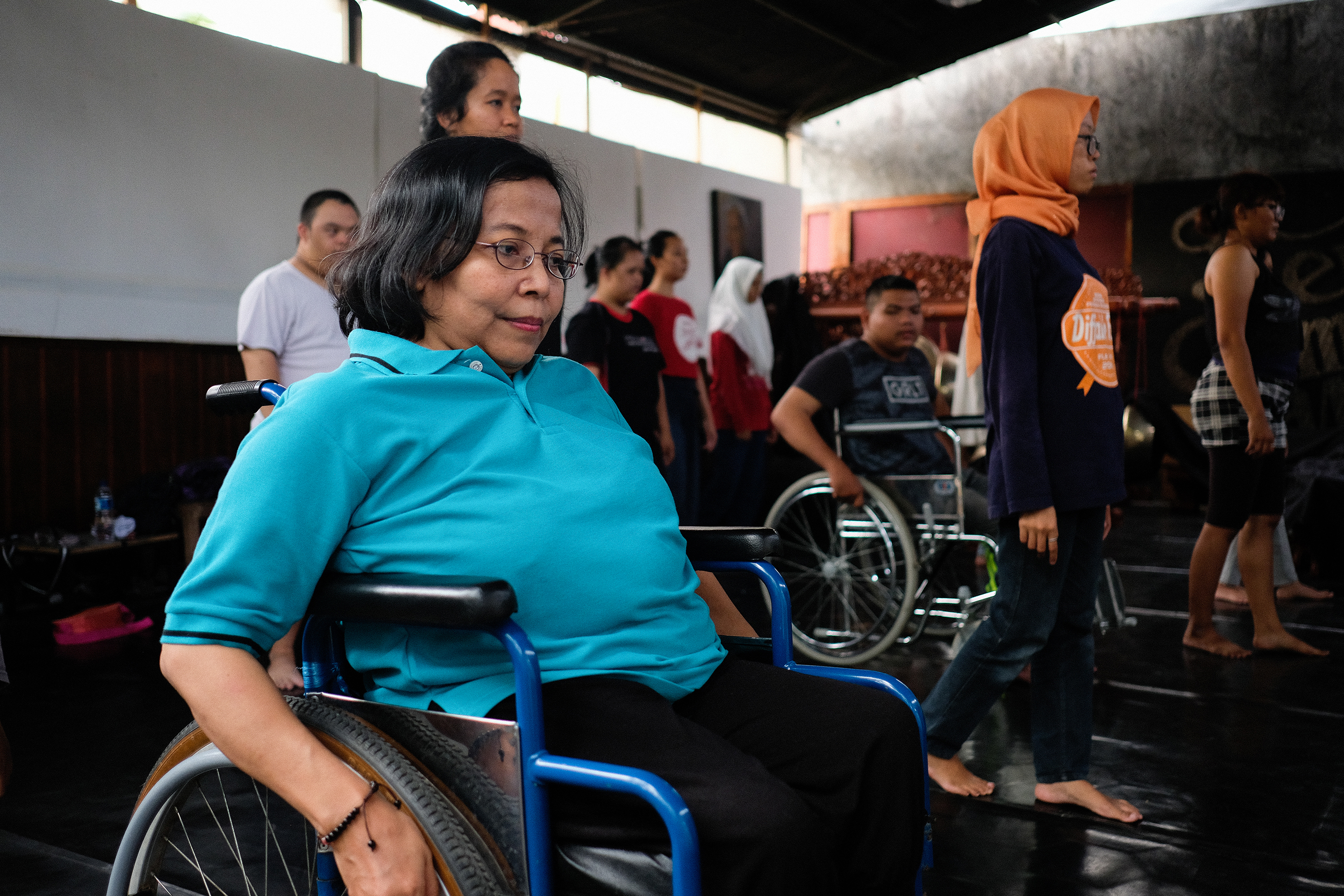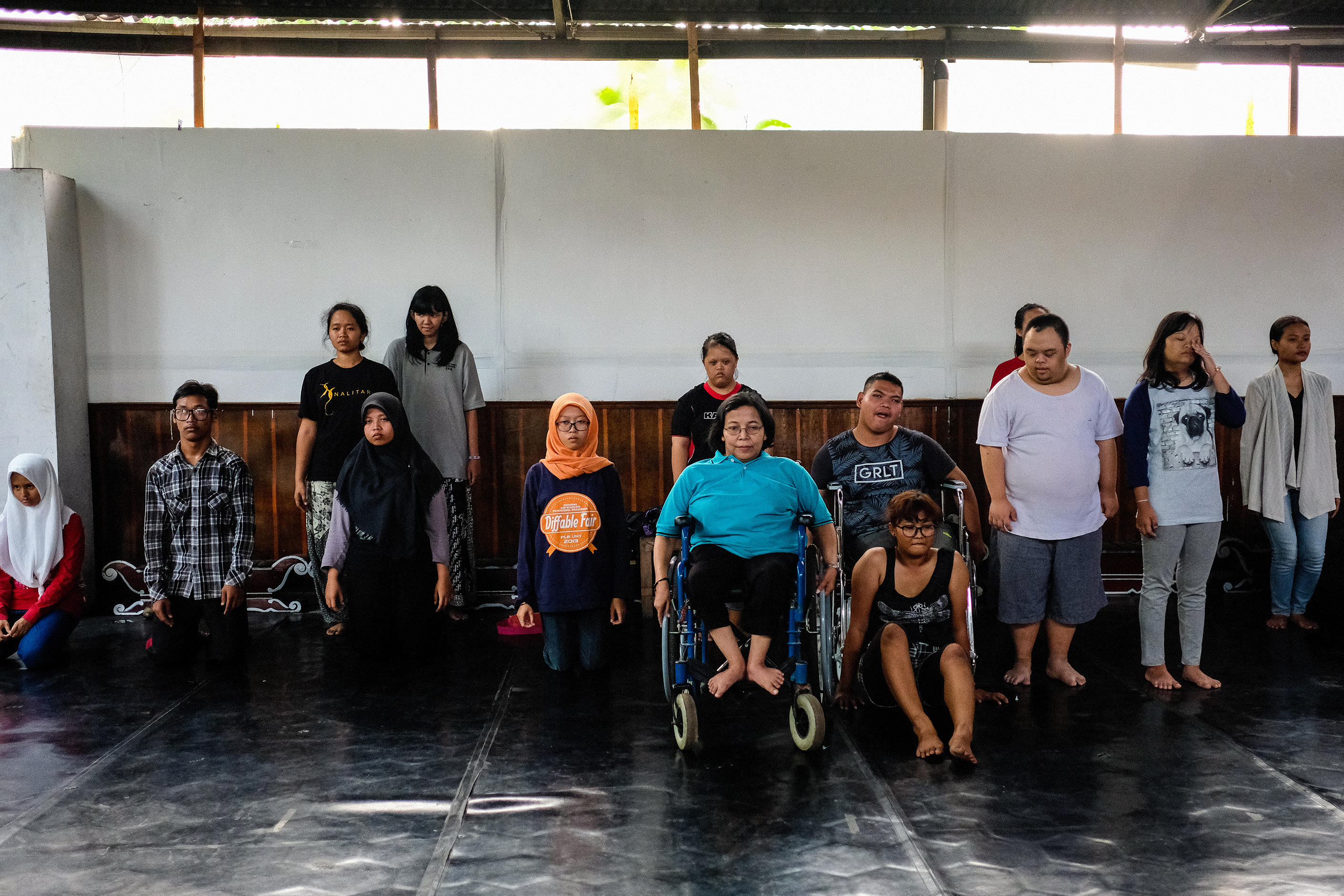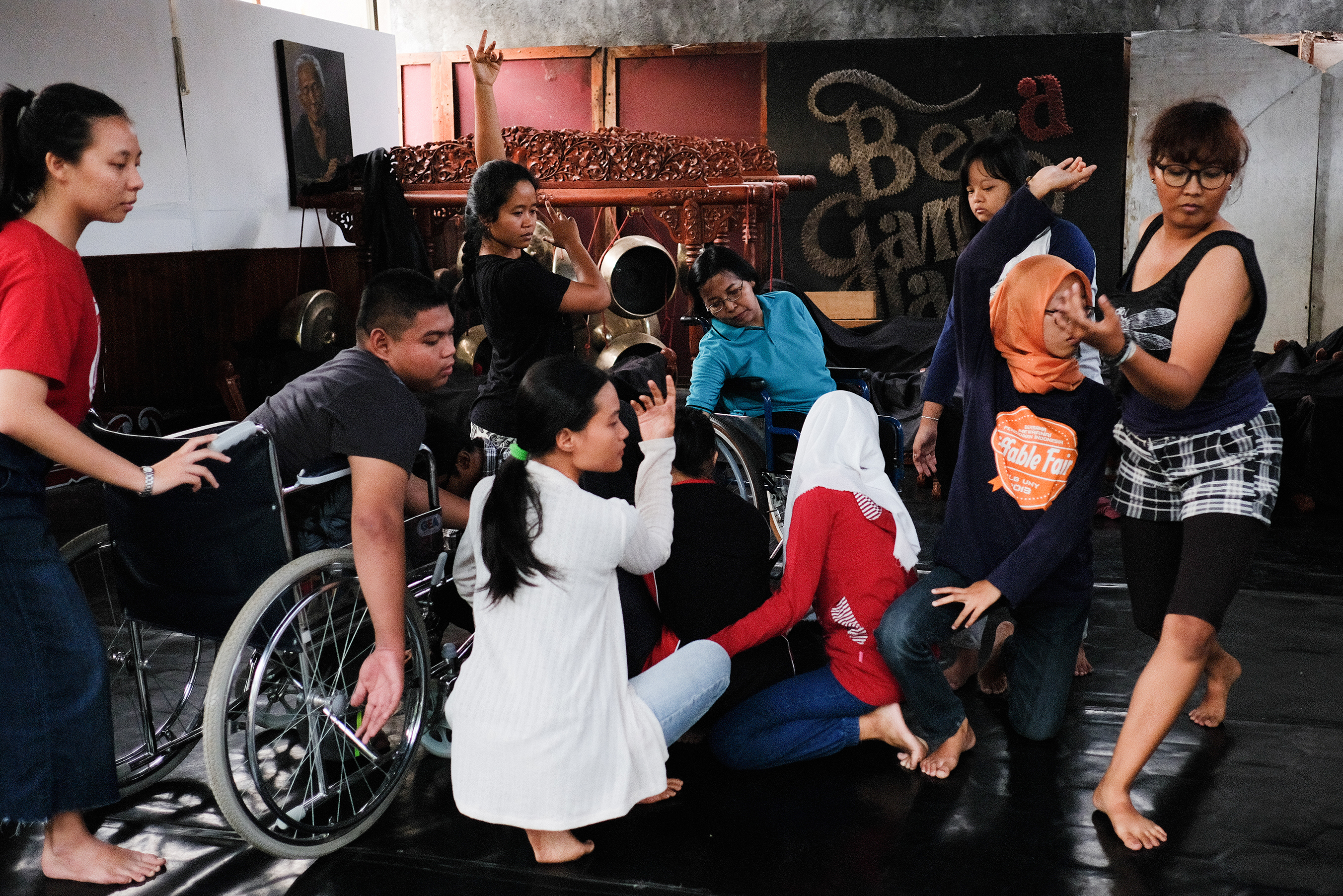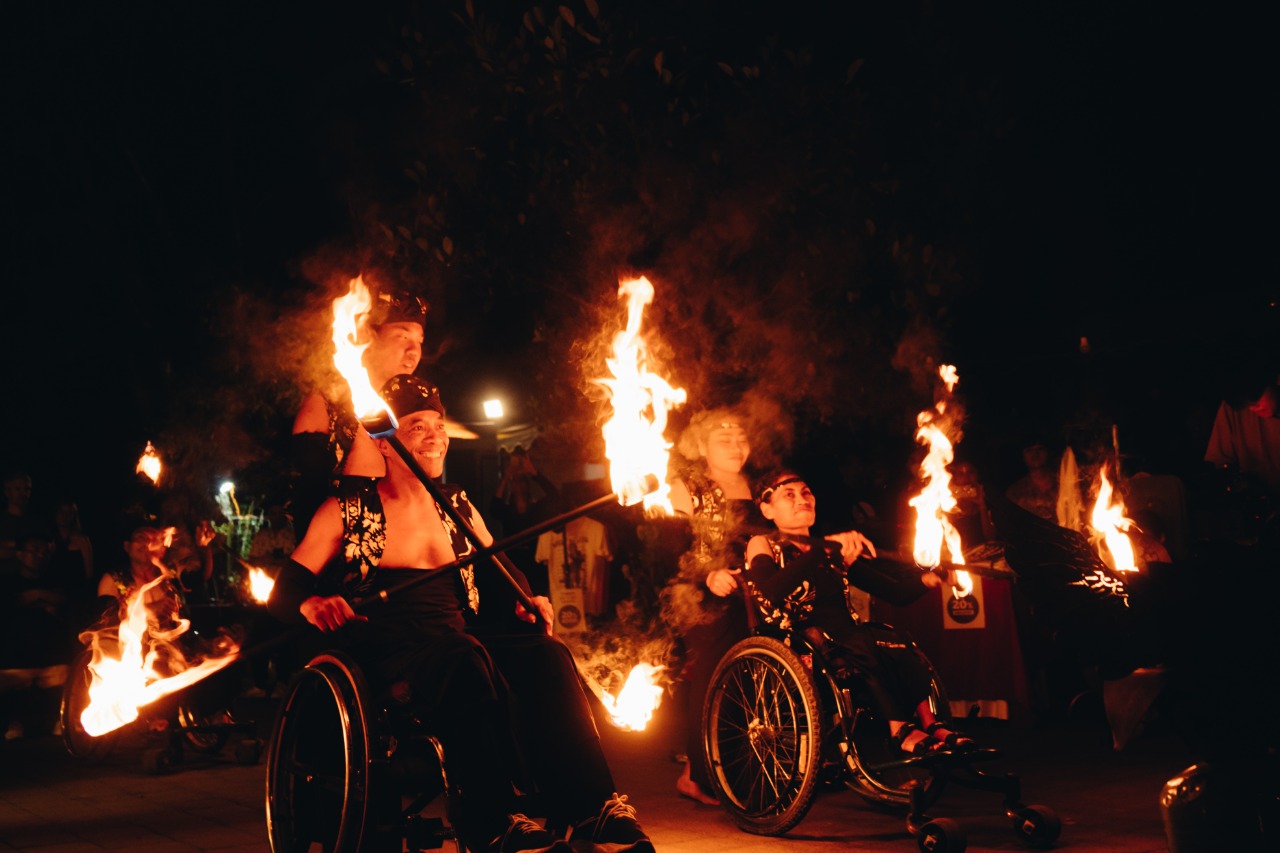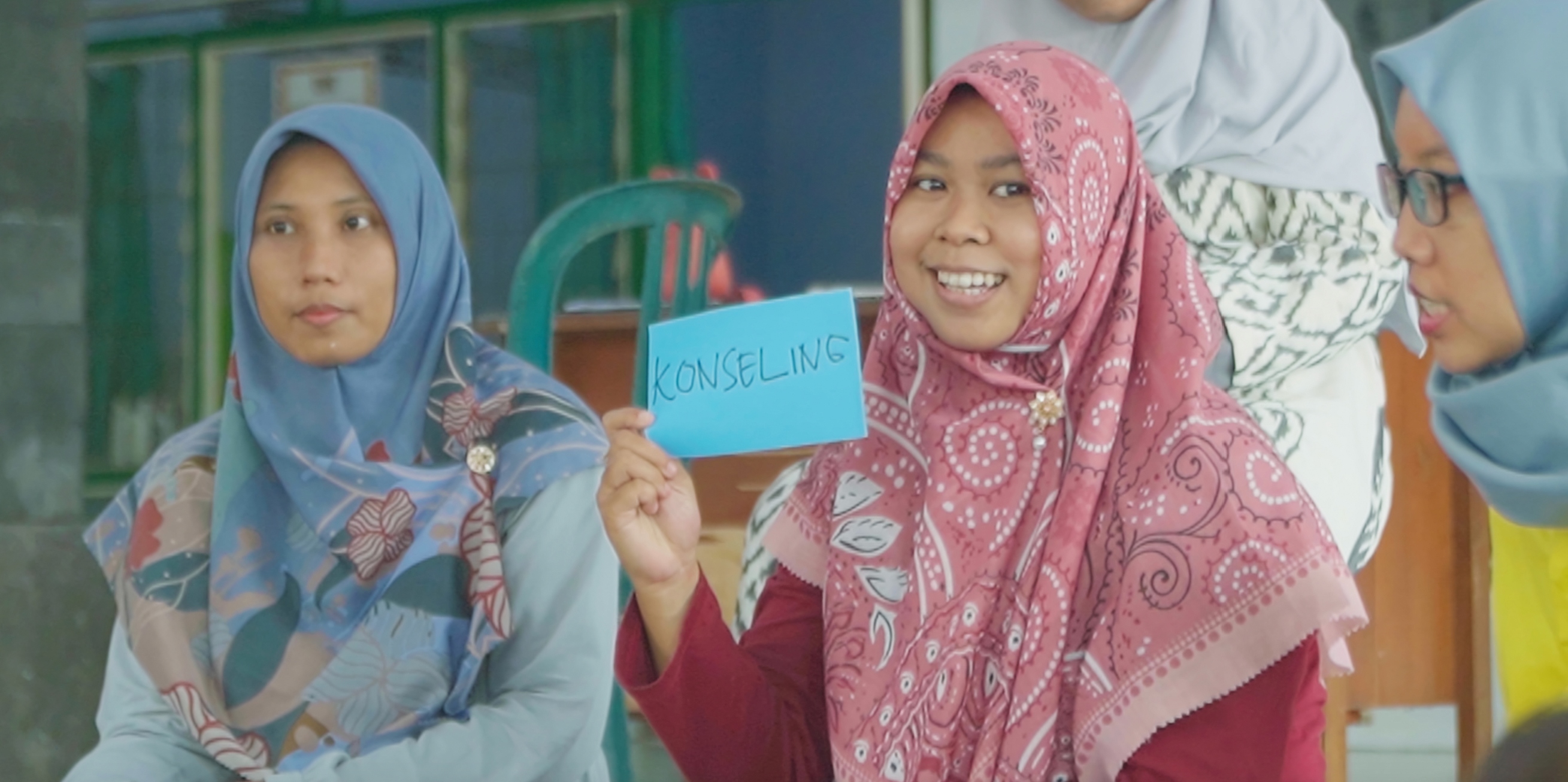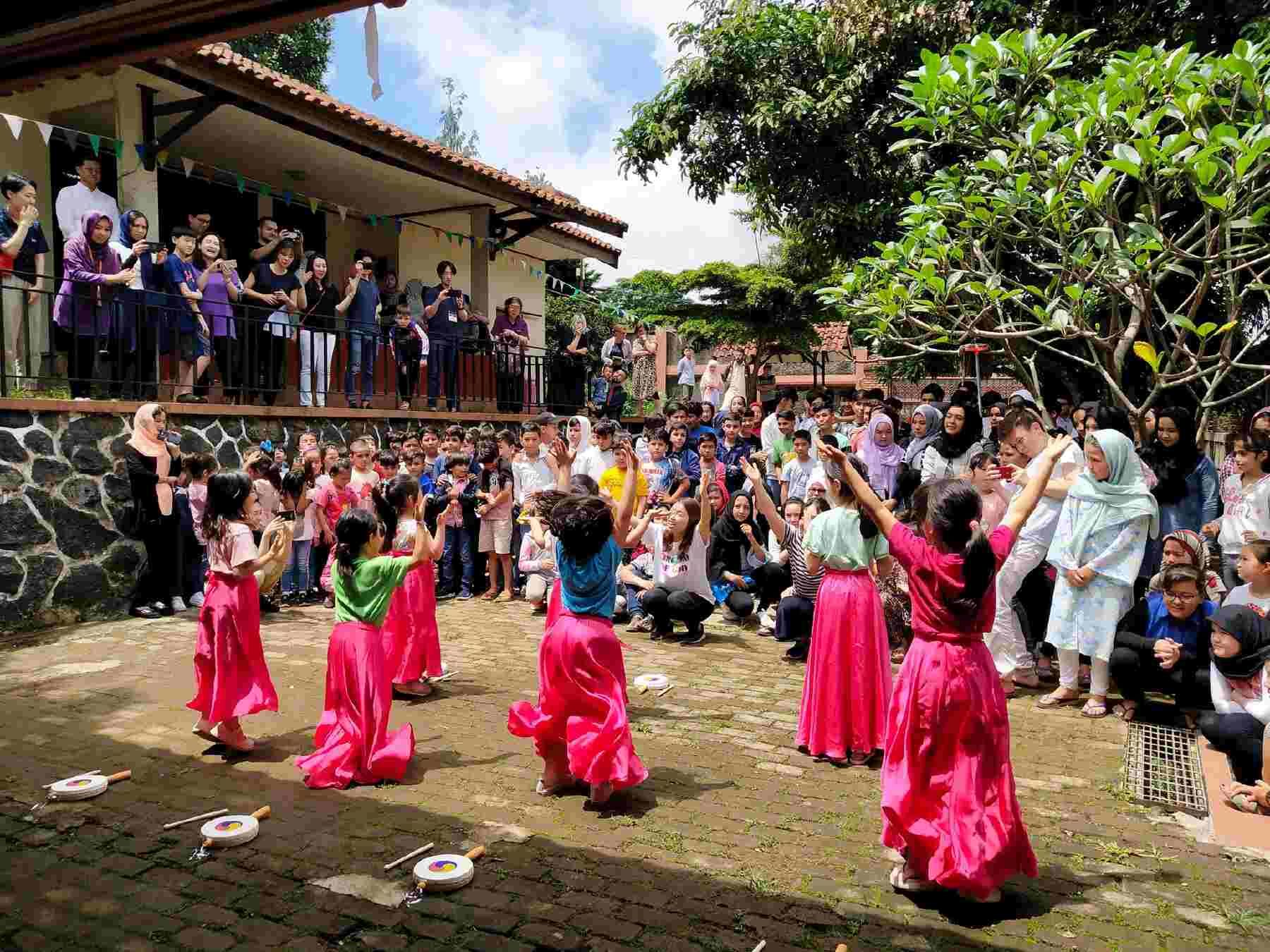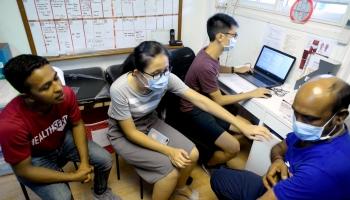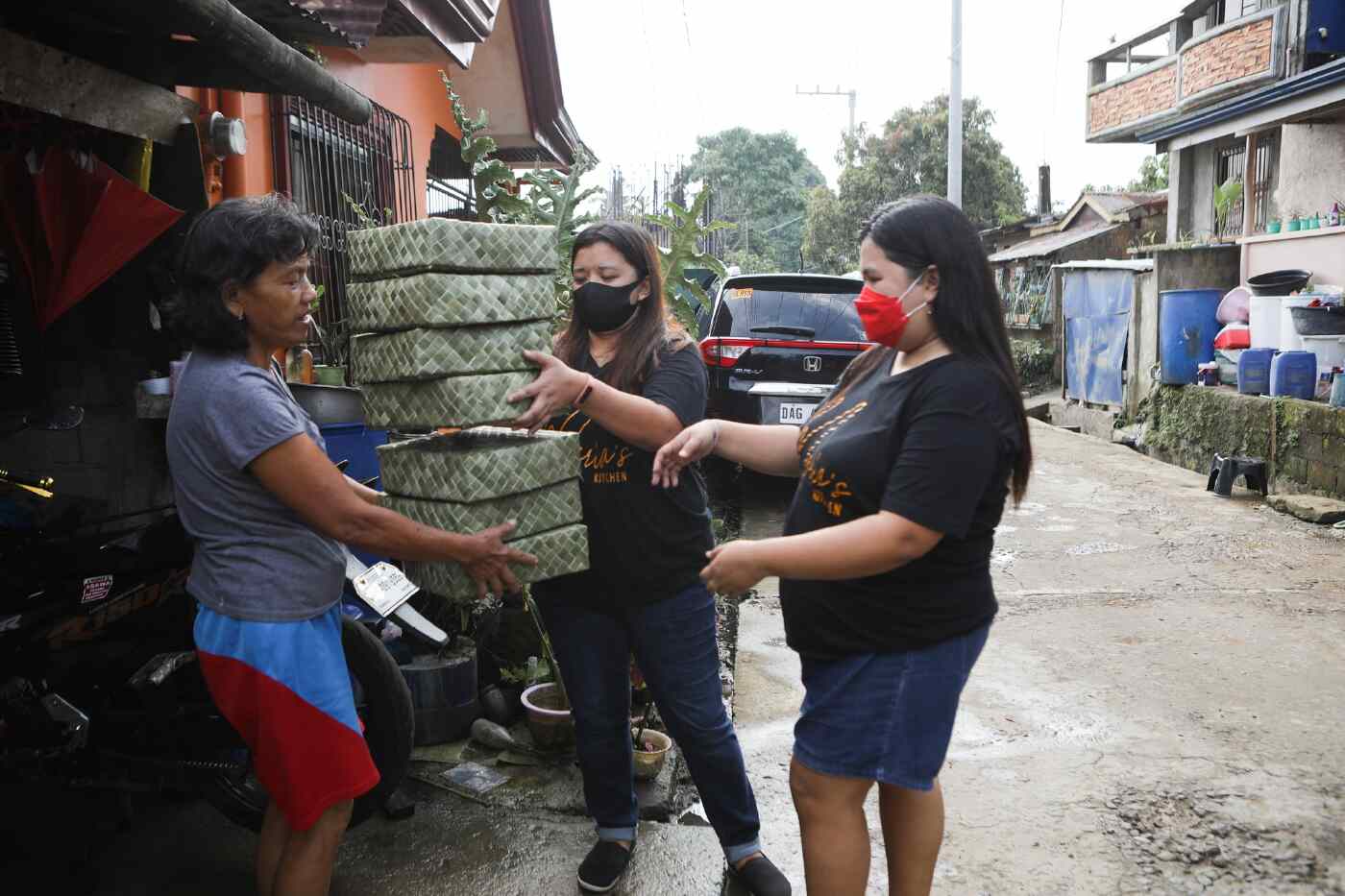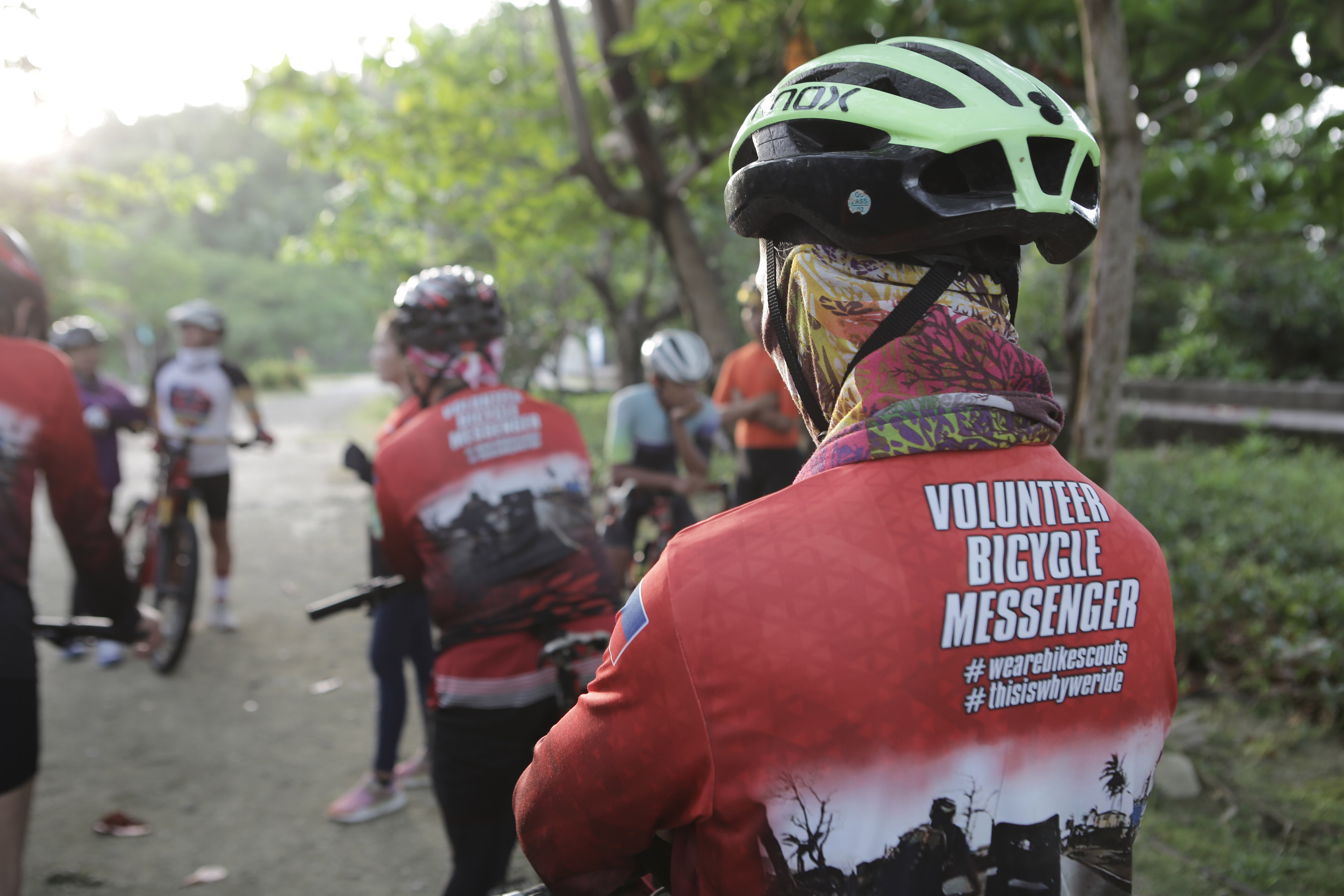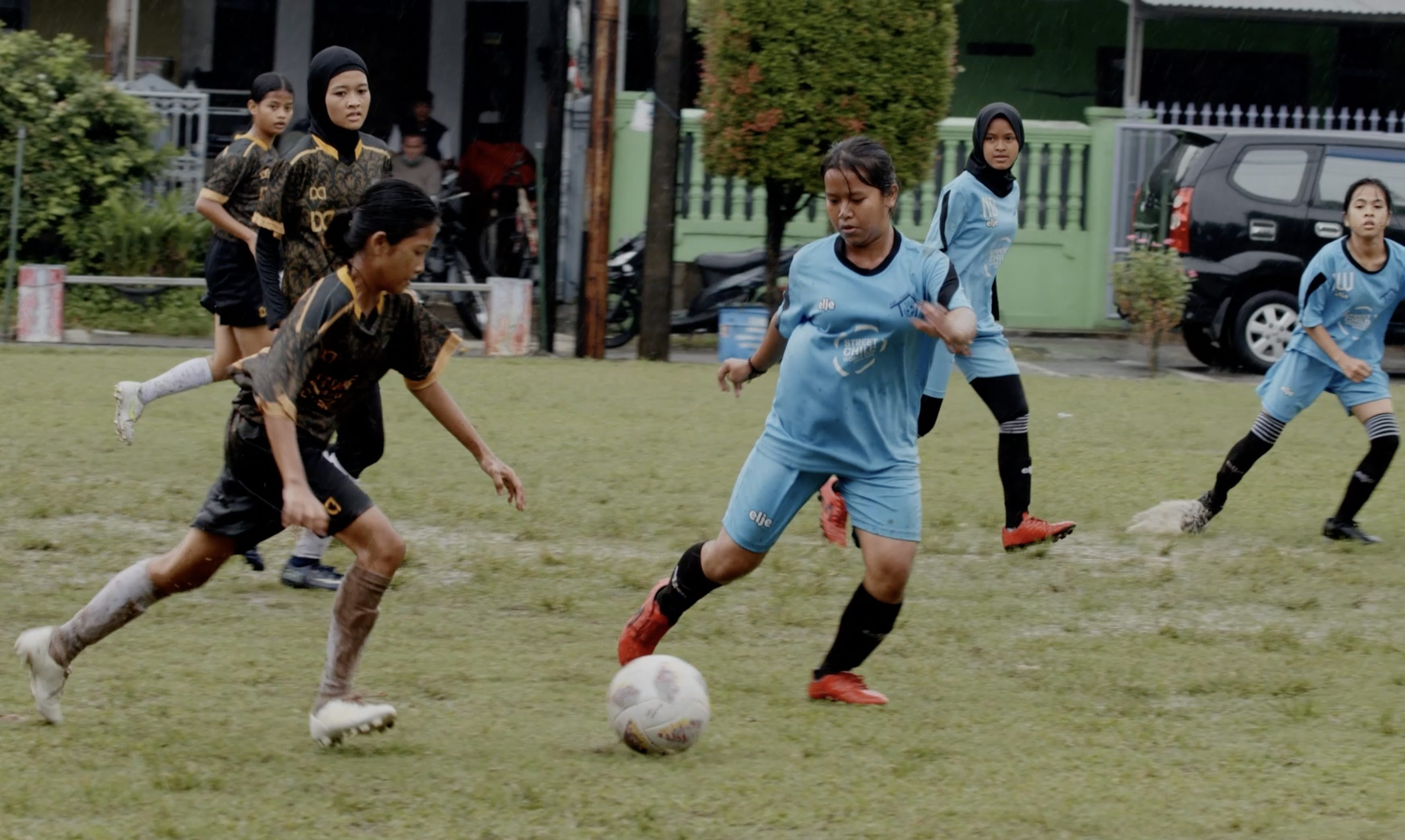The Ride to Inclusivity
"What we can do is erase limitations for our wheelchair-bound friends. Those who were completely unable to step out of the house before due to lack of transport – those are the ones we want to help."
At rush hour in the Indonesian city of Yogyakarta, a man with crutches tries to make his way up the steps to the elevated bus-stop. Sweat pours down his face as he struggles in the relentless heat. When the bus arrives, boarding it against the crush of commuters is no less a challenge, especially navigating the yawning gap between the platform and bus entrance. The obstacle race does not end here - a steep ramp awaits Triyono at his destination, another potential hazard to traverse.
“I’ve fallen, toppled over, slipped on the ramp, as it is made of steel and gets slippery in the rain. But this is the only public transport we have,” he says.
Necessity has been the mother of invention for Triyono, who in 2015 started the city’s first cab service for people with disabilities (PWDs). Difa, the name of his social enterprise, is short for ‘difabel’, or ‘differently abled’ in Bahasa Indonesian.
A polio survivor, he saw how inaccessible the city was for those who wrestled with wheelchairs and other mobility devices. Rather than sit around lamenting about social inequalities, Triyono set about designing a custom-made vehicle to ferry passengers with disabilities, many who lived far away from public bus routes. The inability to travel had isolated them, as it was impossible to leave their homes, to socialise or to find a job.
“The key is mobility and visibility. After that comes acceptance, appreciation and inclusivity,” Triyono says.
“If their mobility is blocked, they are unable to meet people, which makes it hard for anyone to relate to them...Discrimination [then] happens in the form of bullying, insulting, and ostracising – stemming from the idea that the disabled are weaker.”
Triyono also saw the chance to hire and train riders with disabilities, giving them the means to earn an income and become active members of their communities.
“Difa has helped them to change, in terms of attitude, manners, self-esteem and communication skills,” he says. “All our drivers have mild disabilities and low education levels. Before, they were unmotivated. Now they speak better, and care about their appearance. They are also better off financially.”
Customers, too, give Triyono the motivation to expand the cab service. Passengers like fellow polio survivor Lusi, who due to Difa, was able to reconnect with her passion for dance.
She says, “Difa helps me to move around...so I don’t just stay at home with my wheelchair. I can go out to meet friends and [attend] dance [classes]. Before I couldn’t travel freely; taxis are expensive and motorbikes don’t have a sidecar. Difa empowers disabled people, who transport other PWDs.”
But the journey towards an inclusive society has only begun. Triyono hopes to serve all cities in Indonesia: “We need funding to build new motorbikes with sidecars, to train drivers, and to develop our system in various cities.”
Photo Gallery
See all 19 photos
About Difa City Tour and Transport Organisation
Contributors
Director & Editor
Producer, Writer & Photography
Fixer
Masrur Jamaluddin
Editor
Edmund Loh & Emma Jeman
Audio Mix
Home Studio
Consultant
This story was done in partnership with The MeshMinds Foundation.





